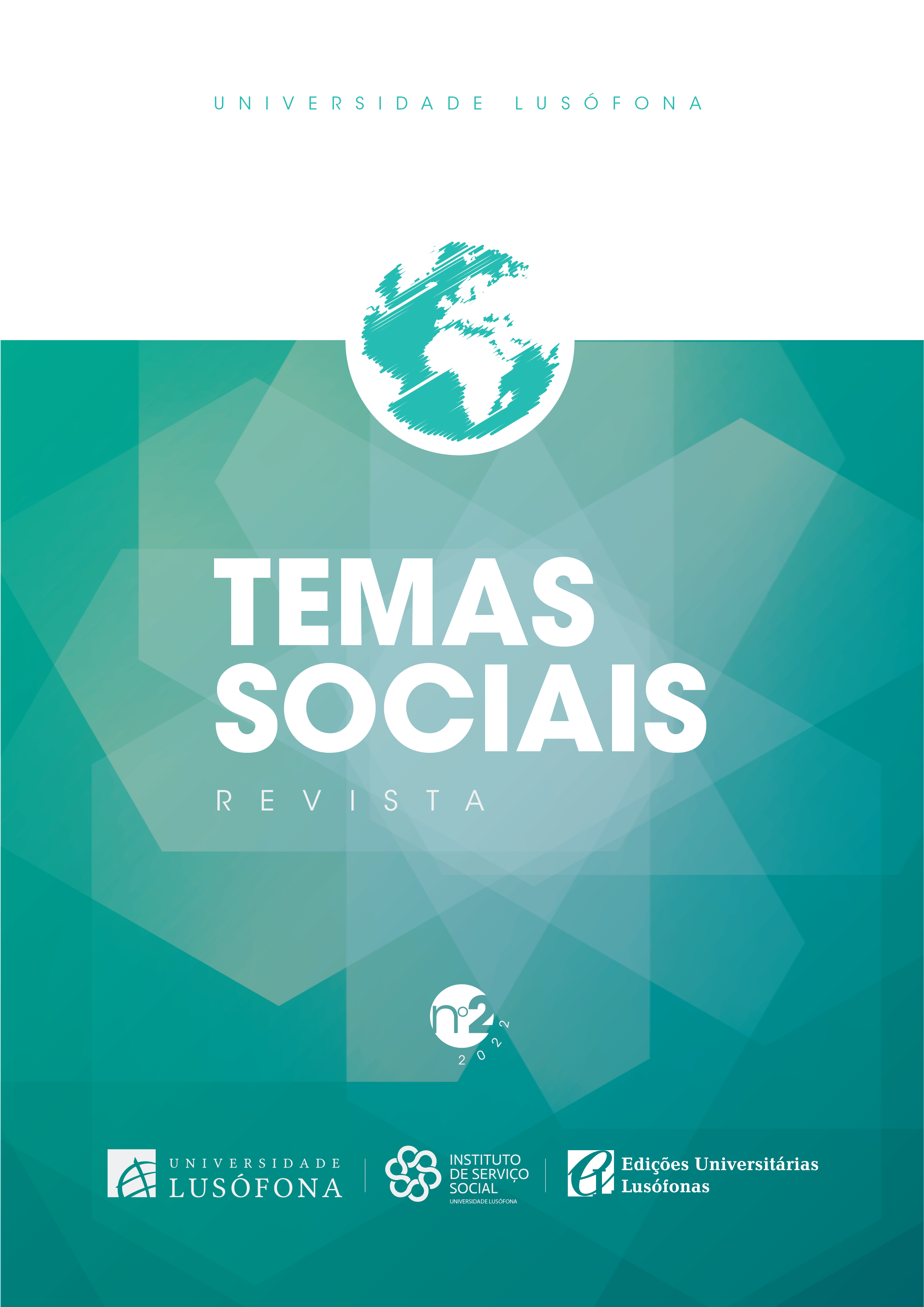A problemática da Violência no Namoro: A perspetiva de adolescentes do concelho de Cascais
https://doi.org/10.53809/TS_ISS_2022_n.2_135-149
Abstract
Este artigo procura estudar os níveis de legitimação da violência no namoro entre os jovens adolescentes no concelho de Cascais. O estudo envolveu 1 026 alunos, com idades entre os 14 e os 20 anos, sendo 53,8% do sexo masculino e 46,2% do sexo feminino. Utilizámos uma abordagem metodológica quantitativa e a recolha de dados foi cumprida através do inquérito por questionário, comportando a caracterização sociodemográfica e a Escala de Atitudes acerca da Violência no Namoro (EAVN). Alguns dos resultados mais relevantes obtidos mostram que o tipo de violência com níveis mais elevados de legitimação encontra-se associada à violência psicológica, decrescendo para a física e sexual. Relativamente à relação desta legitimação com as características dos jovens, observamos níveis de legitimação mais elevados em jovens do sexo masculino, com três ou mais retenções escolares, residentes em habitação social, inseridos em agregados familiares numerosos, com consumos de drogas, que não são vítimas de violência no namoro, e que são agressores de violência no namoro.
Downloads
Open Access Policy:
The Journal facilitates free, open and immediate access to its contents to foster the exchange of knowledge at a global level.
By submitting their work, the author(s) authorise the publication and dissemination of their work and are responsible for its content.
Code of Ethics:
The Journal is a digital tool that enables the dissemination of knowledge in a globalised society where technology, communication and information occupy a prominent place. The publication promotes equal opportunities facilitated by knowledge. To this end, the Journal is committed to the content it publishes, adopting a code of ethics based on the following principles:
1. The texts received must be original, by the author(s) alone and unpublished, i.e. they must not have been previously published, broadcast or sent to another publication.
2. Authors are responsible for requesting any authorisations necessary to publish their texts, with the respective reference to the sources consulted.
3. That organisation must authorise work funded by an organisation to disseminate the results.
4. the plagiarism detection tool in force will review all work received at Universidade Lusófona - Centro Universitário de Lisboa.
5. The articles received will be evaluated by two experts in the field, guaranteeing the anonymity of the author(s) and the evaluators.
6. Papers involving people as the research subject must obtain informed consent from all of them, with strict respect for the confidentiality of personal data and, if necessary, the decision of the Ethics Committee.
7. The list of authors should only include those who contributed intellectually to the work, i.e., who designed and carried out the research, wrote up and analysed the results and approved the final version of the text.



